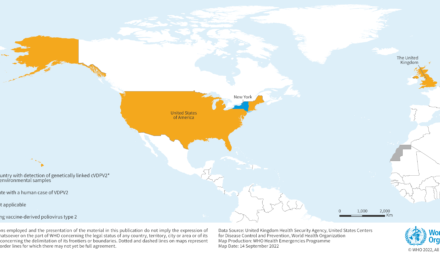Children’s Mercy Kansas City Pioneers Groundbreaking Approach for Treating Previously Untreatable Conditions
Children’s Mercy Kansas City has made a breakthrough in the fight against rare genetic diseases, introducing a new method utilizing personalized antisense oligonucleotides (ASOs). This cutting-edge approach has demonstrated promising results in preclinical evaluations, offering fresh hope for patients suffering from conditions that were once deemed untreatable. The method is not only faster and more cost-effective than traditional models, but it also allows for personalized therapies in just eight weeks—significantly quicker than the industry standard.
The research paper, titled “Rapid and Scalable Personalized ASO Screening in Patient-Derived Organoids,” was recently published in the prestigious journal Nature.
Traditionally, generating patient-derived induced pluripotent stem cells (iPSCs) could take up to a year and cost between $5,000 and $10,000 per patient. The new method developed by Children’s Mercy reduces both the time and expense involved. Using only a small sample of blood cells, the team can now generate iPSCs in just two to three weeks at a cost of under $500 per patient.
Using these iPSCs, the researchers then grew patient-specific organoids—3D cell models that replicate organ development and function. These organoids provide powerful insights into disease biology and can be used to develop targeted therapeutics.
Dr. Scott Younger, Director of Disease Gene Engineering at the Genomic Medicine Center and leader of the Younger Laboratory, shared, “Instead of waiting more than a year for cell models to be generated before experiments could even begin, a family could go from blood draw to diagnosis and/or treatment recommendation in a month or two.”
The new method was validated using samples from three patients with Duchenne muscular dystrophy enrolled in the Genetic Answers for Kids (GA4K) program. The researchers were able to successfully restore dystrophin protein expression and function in the organoids using an FDA-approved ASO for one patient, and patient-specific ASOs for the others.
The implications of this approach extend far beyond Duchenne muscular dystrophy. Dr. Steve Leeder, Interim Executive Director of the Children’s Mercy Research Institute, noted, “Patient-derived organoid models have the potential to be widely used in creating cellular systems for investigating disorders involving the heart, kidney, liver, and other tissues. These models can also help identify which medications are likely to be effective for a specific patient.”
Dr. Younger emphasized the potential for widespread adoption of the method: “The methods and protocols generated in this study are accessible and can be implemented in any standard research laboratory without the need for specialized equipment or high-cost reagents.”
By enabling the rapid generation of patient-specific cellular systems, this revolutionary approach promises to accelerate research and treatment for rare diseases, ultimately improving patient care worldwide.
For more information, refer to the article published in Nature (2025). DOI: 10.1038/s41586-024-08462-1.
Disclaimer: This article summarizes the findings from the study “Rapid and Scalable Personalized ASO Screening in Patient-Derived Organoids” published in Nature and does not constitute medical advice. Consult healthcare professionals for personalized treatment recommendations.












